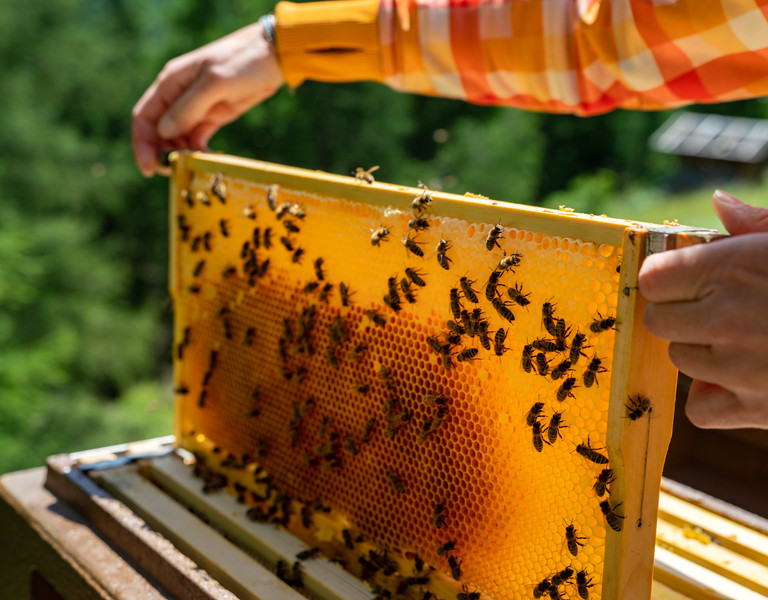
THE SWEETNESS
OF BEE-ING
OF BEE-ING
“We can only appreciate and protect what we know." This is the guiding principle by which the young couple Bernadette and Lukas live and work together with beekeeper father Willi. Beekeeping is a very special affair of the heart, a life task and a passion for them. In 2016, they fulfilled a dream and at the same time took on responsibility with the Anraitl Mountain Beekeeping. For their protégés, the bees, but also for nature.
Arriving at the “Anraitl” on a slope above Sölden, you are overwhelmed by the tranquillity of the otherwise bustling
tourist resort. Meadows and forests in bloom all around, imposing mountain peaks in the background and the constant buzzing of bees above it all. The Anraitl mountain apiary, founded in 2016 after a beekeeping course as a hobby with four beehives, now comprises 25 hives. Tens of thousands of busy little bees that swarm out every day to collect the finest pollen – exclusively from alpine blossoms, of course, because the Anraitl Mountain Beekeeping is located at over 1,400 metres above sea level. This is what makes the products so special and gives the mountain honey its name.
“Our mountain honey differs in colour, consistency and taste from conventional blossom honey. Within a flight radius of
3 km, the bees here mainly find alpine roses, cranberries and blueberries. These plants are very resistant and this strength
is also transferred to the end product,” beekeeper Willi reveals. And the local superfood really does contain the power of the mountains, which is why here at Anraitl they swear by the daily dose of honey as an immune booster.
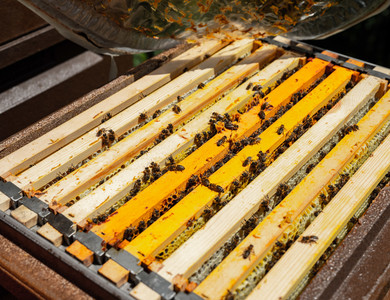
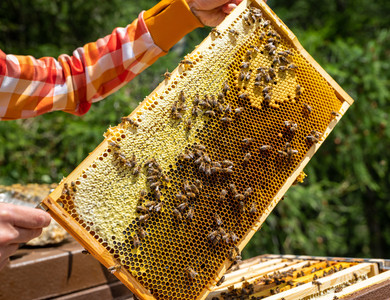
But it takes a few steps before the honey is in the jar. “The honey is ripe in mid-July, after which the combs are uncapped
and centrifuged. Then the honey is strained up to three times to remove wax residues. Finally, the extracted honey has to
rest for up to two months until it crystallises and only then it is heated and bottled,” Bernadette summarises. The first
day of harvest also marks the beginning of supplementary feeding, until the hives are finally winterised in mid-November.
To hibernate, they go out of the valley to warmer climes in Roppen, where the bees live in a so-called winter cluster
on a low flame until next spring. Besides the honey, the valuable beeswax is also processed and poured into candles by
Bernadette, who works full-time at Riml Sports in Hochgurgl.
“It is a satisfaction to create something new and beautiful from a by-product. It’s in keeping with our sustainablw way of living and working,” she enthuses. In their work, it is extremely important for the beekeeping trio not only to see
the bees as farm animals, rather they want to give something back with beekeeping. “Not only for these wonderful animals,
but also for the preservation of the intact nature in which we are allowed to live. And of course for the important pollination
of crops, whose yield we would not have without the bees,” explains young beekeeper Lukas. To maintain the population
of bees, they even look after their own queen breeding – the “king discipline” of beekeeping. “We are convinced that we
are taking on a bit of responsibility and making an important contribution in terms of environmental protection.”
And thanks to this commitment, we can hopefully continue to enjoy nature on the sunny side of Sölden and the sweet nectar
from the Anraitl mountain apiary for a long time to come. Both honey and candles are available directly at the Anraitl.
Kontakt
Sonnleithenweg 2, 6450 Sölden
Tel. +43 (0) 676 84 76 78 200
info@anraitl.at
www.anraitl.at


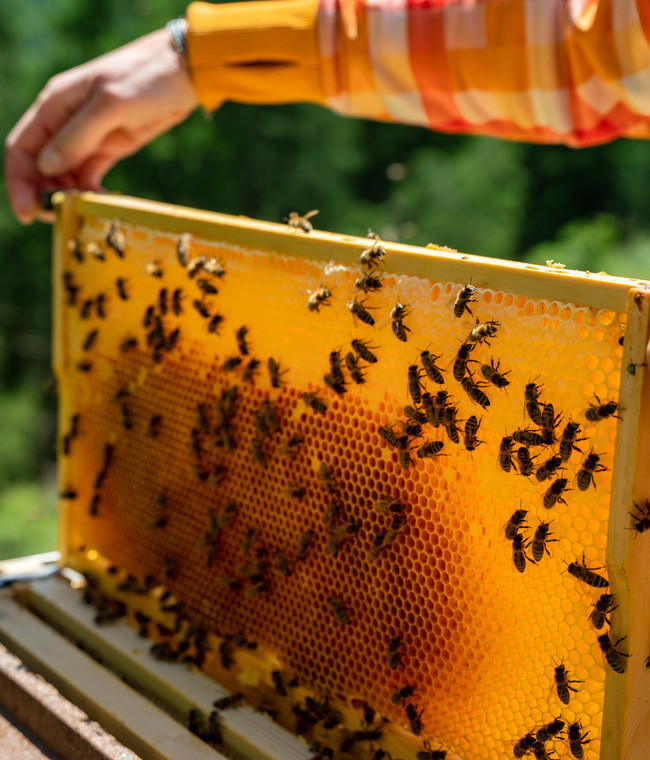
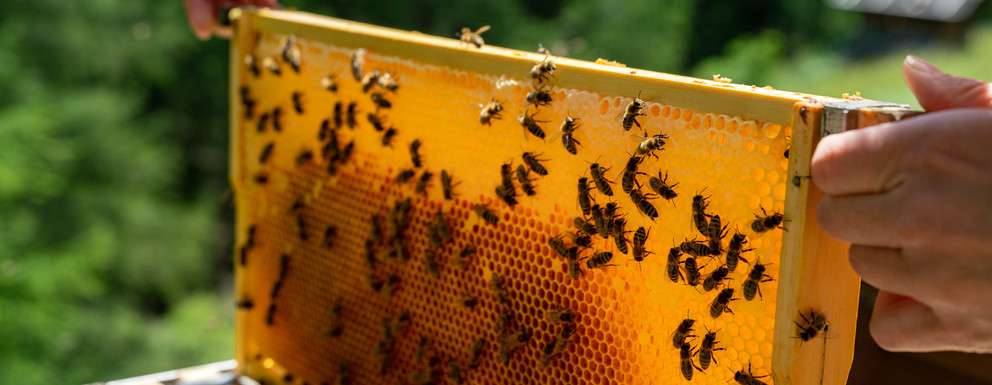
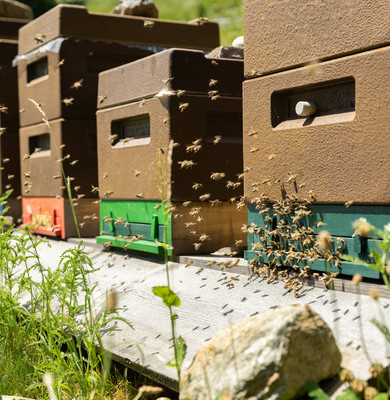
 share
share
 +1
+1